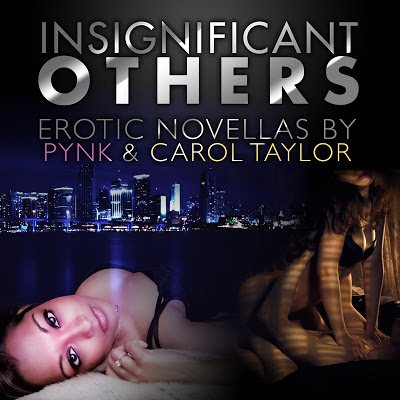 Gardenia Destang is known in the Caribbean for writing, producing and directing screen plays. She was responsible for "Heartstrings", a romantic drama comprising eight-30 minute episodes that was the first local television mini-series in St. Kitts. She also wrote, directed, and co-produced the well-known Barbadian play “Do you Know Damien”, a two hour production.
Gardenia Destang is known in the Caribbean for writing, producing and directing screen plays. She was responsible for "Heartstrings", a romantic drama comprising eight-30 minute episodes that was the first local television mini-series in St. Kitts. She also wrote, directed, and co-produced the well-known Barbadian play “Do you Know Damien”, a two hour production.Gardenia’s love for writing was given full expression when she decided to move away from script writing and write a novel. Being a perfectionist, Gardenia decided to focus on writing and to leave behind the additional complications involved in producing a play-- organizing the cast, locations, sets, etc. She decided to write a book where she could get carried away in her head with the story and the characters. The end result - Becoming Me.
Keeping your groove whilst writing
I have heard some say that writing is easy, that there is a good story in all of us. That may be so, but having a story in your head and articulating it on paper for others to feel and appreciate is not always that easy. Initially, you are excited and can easily get a few chapters down, but as the story develops and the characters evolve, it may become more challenging and we lose our “groove”. I know this has happened to me especially as I worked to bring the characters alive to my target audience. Here are a few tips that I have found that have worked for me.
i. Patterning the Protagonist. I found this to be particularly inspiring when there was a person I could look to, when I would hit a wall in my writing. My inspiration would come from different events, a person’s expressions, their thought processes and their interaction. Using this approach brings excitement to the storyline as I am able to weave these personalities into the plot.
ii. Finding the Similar. You are not the first and certainly not the last author in your genre and there are others who have been out there much longer than you. Learn from them. Asking questions to assist me in defining my target audience helped to keep my writing focused and relevant.
iii. Taking a Break! Go out with friends. Socialize! I found that sometimes when I am stuck, it is best to change my environment. This leads to a refreshing mental break that helps me increase my productivity once I settle back into my writing mode.
iv. Working with Your Clock. Early mornings and I and are not usually friends. :-) My best work is done at night. Knowing your best 'creativity time' can help you get over the “stuck feeling” and propel you along. While we may push ourselves to complete a chapter a day or within a specific time as a goal, if your mind and heart are not in it and the “time” of day is not right you, would have wasted valuable time.
v. Using Your Creativity Lens. Since I started writing I have been noting experiences as “book worthy”. When my creative mood is aligned with my most productive time of day, I am able to accomplish quite a lot, as I intertwine the noted experiences into a building plot. Find your creative lens to capture different life experiences. See how you can link them into a storyline. Remember, that each experience is unique. Build on your experience to create an adventure that is uniquely your own.
vi. Exercising. There is sufficient evidence to indicate that exercise can boost creativity as the body releases endorphins and serotonin (feel good hormones). Exercise also can put one in a positive frame of mind. After a good work out I am usually ready to take on much more and I am inspired to put in a few hours of writing.
Writing takes time and patience and your creativity can wane on the way to the finish. Finding things, places and people that inspire you can help you keep your momentum.
















.jpg)
